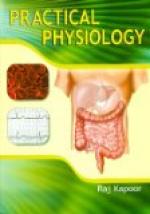Experiment 145. We often fail to distinguish between the sense of taste and that of smell. Chew some pure, roasted coffee, and it seems to have a distinct taste. Pinch the nose hard, and there is little taste. Coffee has a powerful odor, but only a feeble taste. The same is true of garlic, onions, and various spices.
Experiment 146. Light helps the sense
of taste. Shut the eyes, and
palatable foods taste insipid. Pinch
the nose, close the eyes, and see
how palatable one half of a teaspoonful
of cod-liver oil becomes.
Experiment 147. Close the nostrils,
shut the eyes, and attempt to
distinguish by taste alone between a slice
of an apple and one of a
potato.
320. Modifications of the Sense of Taste. Taste is modified to a great extent by habit, education, and other circumstances. Articles of food that are unpleasant in early life often become agreeable in later years. There is occasionally a craving, especially with people of a peculiar nervous organization, for certain unnatural articles (as chalk and laundry starch) which are eaten without the least repugnance. Again, the most savory dishes may excite disgust, while the simplest articles may have a delicious flavor to one long deprived of them. The taste for certain articles is certainly acquired. This is often true of raw tomatoes, olives, and especially of tobacco.
The organs of taste and smell may be regarded as necessary accessories of the general apparatus of nutrition, and are, therefore, more or less essential to the maintenance of animal life. While taste and smell are generally maintained until the close of life, sight and hearing are often impaired by time, and may be altogether destroyed, the other vital functions remaining unimpaired.
321. Effect of Tobacco and Alcohol upon Taste. It would be remarkable if tobacco should fail to injure the sense of taste. The effect produced upon the tender papillae of the tongue by the nicotine-loaded juices and the acrid smoke tends to impair the delicate sensibility of the entire surface. The keen appreciation of fine flavors is destroyed. The once clear and enjoyable tastes of simple objects become dull and vapid; thus highly spiced and seasoned articles of food are in demand, and then follows continued indigestion, with all its suffering.
Again, the burning, almost caustic effect of the stronger alcoholic drinks, and the acrid pungency of tobacco smoke, are disastrous to the finer perceptions of both taste and odors.
322. Smell. The sense of smell is lodged in the delicate membrane which lines the nasal cavities. The floor, sides, and roof of these cavities are formed by certain bones of the cranium and the face. Man, in common with all air-breathing animals, has two nasal cavities. They communicate with the outer air by two nostrils opening in front, while two other passages open into the pharynx behind.




